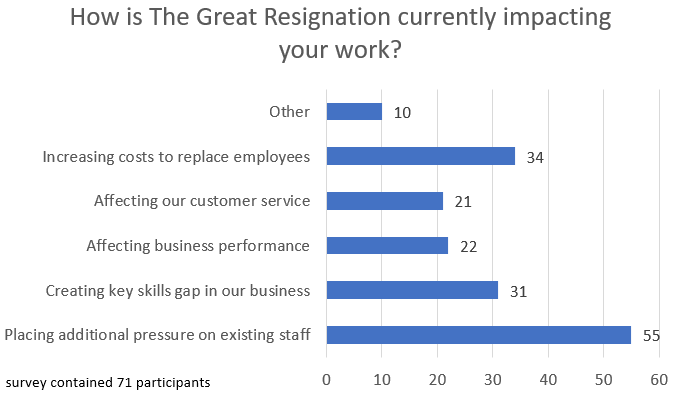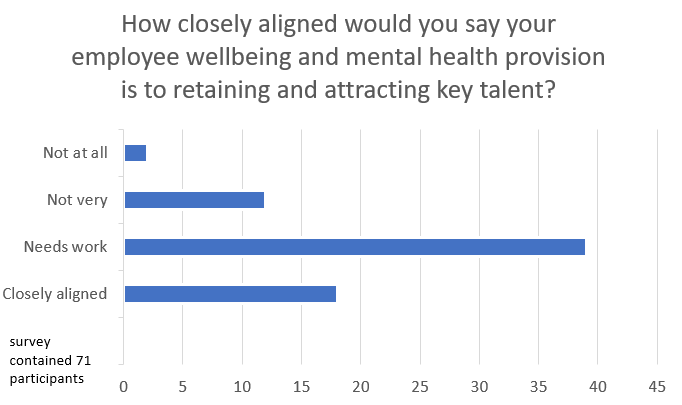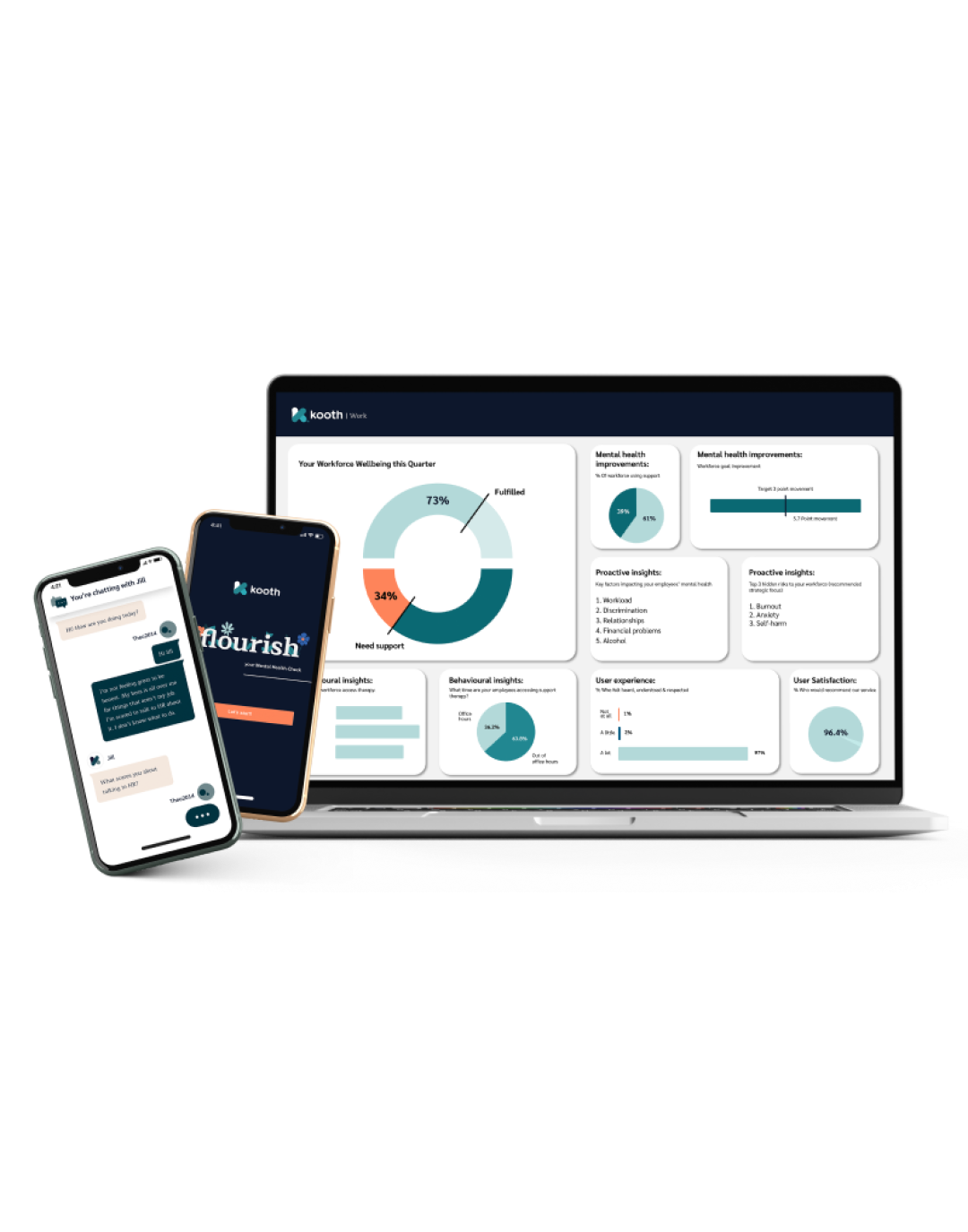Kooth Work led a panel of heads of Wellbeing from PwC, John Lewis LLP and MHFA who shared their insights into the phenomenon of the Great Resignation. The panel explored Mental Wellbeing's ability to mitigate the risk of losing Key Talent. Watch the recording below.
Synopsis
- How to tackle the ‘great resignation’ and attract talent
- Creating psychologically safe workplaces
- Meeting the needs of the next generation
You can listen to the session below. We recommend you also read our "Don't Leave" eGuide for HR, Talent and Wellbeing leads. It provides clarity on how your mental wellbeing and talent strategies intersect.
Employee Wellbeing Leadership Panel
- Dr Patrick Johnson, Kooth plc
- Sally Evans, UK Wellbeing Lead, PwC
- Nick Davison, Head of Wellbeing, John Lewis Partnership
- Ama Afrifa-Tchie, Head of People, Wellbeing & Equity, Mental Health First Aid England
Employee needs are changing
The phenomenon of the current ‘Great Resignation’ prompted an insightful discussion between panellists, centred on change. Change in what people expect from a job; changes in the ways we work in response to the pandemic; and calls for employers to change the way they choose to support their staff.

Nick Davison spoke of a new sense of self-control and determination people feel now about their jobs – and of the need for employers to recognise an employee’s psychological contract at work. If successful, this should see them feeling a sense of purpose, a sense of achievement and the autonomy to make a difference. Nick emphasised the need to listen to employees and cited a ‘listening service’ available to John Lewis partners, which last year received around 25,000 calls.
Inclusion and equity
Ama Afrifa-Tchie stressed the importance of inclusion, recognising the need to upskill staff to keep equity front of mind. She advocated for co-creation, where staff are part of the solution rather than being dictated to. Ama described how the pandemic had put a spotlight on wellbeing at work. She urged workplaces to ask themselves whether they are being equitable and inclusive and whether they are thinking about wellbeing.
Getting employee wellbeing right is an opportunity for employers
Sally Evans put forward her vision for change, calling the Great Resignation an opportunity to be seized rather than a problem to be solved – and that we have a chance to do things differently. Sally acknowledged the experience of young people who had had a different experience at school or university through COVID, and who may feel a sense of disappointment: a sense that things may be snatched away at the last minute. Sally also pointed out that while many of us might see younger workers entering the workplace in highly unusual circumstances, this way of working is normal to them.
All of the speakers emphasised strongly the need to incorporate wellbeing practises into every aspect of work, especially given the past two years and the inevitable toll this has taken on workforce mental wellbeing.
Watch the session here







